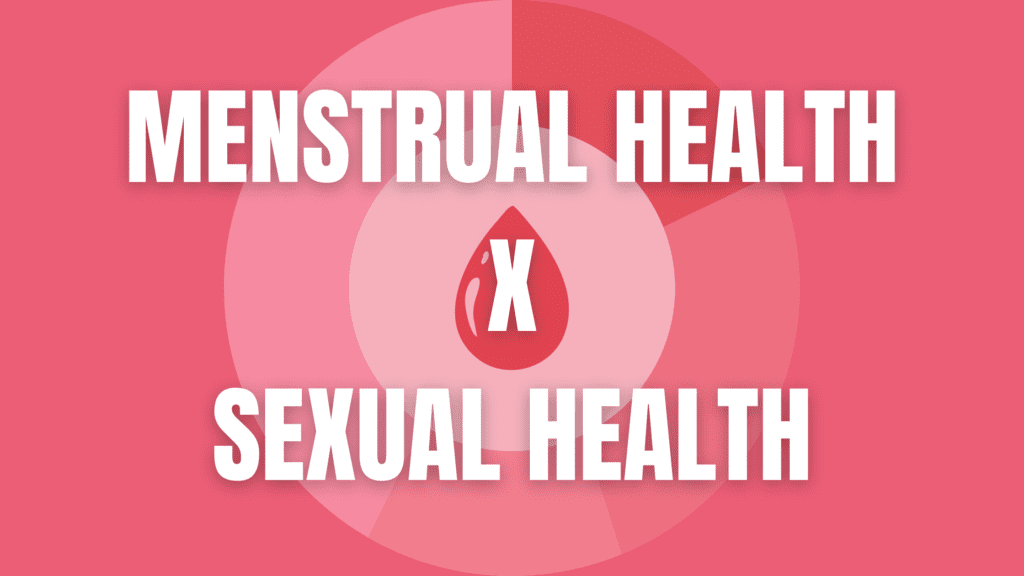Menstrual health is a crucial aspect of overall well-being that encompasses the physical, emotional, and social aspects of menstruation. It refers to the regularity, comfort, and management of menstrual cycles, as well as the absence of menstrual disorders or discomforts. Menstrual health plays an important role in sexual health, as it is closely linked to reproductive health, hormonal balance, and emotional well-being. In this blog, we’ll explore what menstrual health is, why it’s important for sexual health, and how to maintain a healthy menstrual cycle.
What is Menstrual Health?
Menstrual health involves the following key aspects:
- Regularity: A typical menstrual cycle lasts between 21 to 35 days, with periods usually lasting from 3 to 7 days. Regular cycles are a sign that the body is functioning optimally.
- Absence of Painful Symptoms: While some discomfort (like mild cramps) can be normal, severe pain or irregular periods may signal underlying health issues, such as endometriosis or polycystic ovary syndrome (PCOS).
- Hormonal Balance: Hormones play a crucial role in regulating the menstrual cycle. A healthy menstrual cycle reflects balanced hormones and proper functioning of the reproductive system.
- Menstrual Hygiene: Proper care during menstruation is vital. Using clean and appropriate menstrual products, such as pads, tampons, menstrual cups, or period underwear, helps prevent infections and maintain hygiene.
- Emotional Well-being: Menstruation can have an emotional impact due to hormonal fluctuations. Managing stress, maintaining a balanced diet, and ensuring adequate rest can improve emotional health during menstruation.
Why is Menstrual Health Important for Sexual Health?
Menstrual health and sexual health are interconnected in several ways. A healthy menstrual cycle is essential for sexual well-being, fertility, and overall comfort. Here’s why menstrual health matters for sexual health:
1. Reproductive Health and Fertility
Menstrual health is closely tied to the ability to conceive. Regular and healthy periods are an indicator of a well-functioning reproductive system. Irregular periods, excessive bleeding, or missed periods can signal hormonal imbalances, ovulation problems, or other conditions that may affect fertility. By maintaining good menstrual health, individuals are more likely to have optimal conditions for reproduction and may be able to conceive when desired.
2. Sexual Comfort and Enjoyment
Menstrual health can directly impact sexual comfort. Severe menstrual cramps, heavy bleeding, or irregular cycles can make sexual activity painful or uncomfortable. Addressing issues like these can improve sexual experiences by reducing discomfort. For instance, conditions like endometriosis or fibroids can cause pelvic pain, making intercourse challenging. Proper management of menstrual health through medical intervention, lifestyle changes, or pain relief can help alleviate these issues and improve sexual health.
3. Hormonal Balance and Libido
Hormonal fluctuations during the menstrual cycle can influence libido and sexual desire. For many people, sexual desire may increase around ovulation (the middle of the cycle) when the body’s levels of estrogen peak. On the other hand, menstrual periods can sometimes lead to a decrease in libido due to hormonal changes or physical discomfort. By managing menstrual health, individuals can better understand their body’s signals and patterns, which helps maintain a healthy relationship with their sexual health.
4. Impact of Menstrual Disorders on Sexual Health
Conditions like polycystic ovary syndrome (PCOS), endometriosis, and fibroids can affect both menstrual and sexual health. These conditions may cause irregular periods, severe cramps, or heavy bleeding, all of which can impact sexual activity. For example, endometriosis can cause pelvic pain and discomfort during intercourse. It’s important to address menstrual disorders early to reduce their impact on both menstrual and sexual health.
5. Mental and Emotional Well-being
Menstrual health also impacts mental and emotional health, which, in turn, can influence sexual health. For some individuals, hormonal changes during menstruation can lead to mood swings, irritability, or feelings of anxiety. These emotional shifts may affect sexual desire and intimacy. Taking care of menstrual health through stress management, a healthy diet, and regular exercise can promote emotional balance, leading to a better sexual experience and overall well-being.
How to Maintain Healthy Menstrual Health
Taking proactive steps to maintain menstrual health can significantly improve both reproductive and sexual health. Here are some tips for maintaining menstrual health:
- Track Your Menstrual Cycle: Keep track of your period cycle to detect any irregularities early. This can help identify potential issues like missed periods or abnormal bleeding patterns.
- Maintain a Balanced Diet: A well-balanced diet rich in fruits, vegetables, whole grains, and healthy fats supports hormonal balance and overall health. Iron-rich foods are also important to counteract blood loss during menstruation.
- Exercise Regularly: Regular physical activity can help regulate your menstrual cycle, reduce stress, and alleviate menstrual cramps. However, extreme exercise may disrupt periods, so balance is key.
- Practice Good Menstrual Hygiene: Choose the right menstrual products for your body and ensure they are changed regularly to prevent infections. Wash your hands before handling menstrual products and change pads, tampons, or cups frequently.
- Manage Stress: Chronic stress can disrupt the menstrual cycle and affect overall hormonal balance. Practices like yoga, meditation, deep breathing, and getting adequate sleep can reduce stress and improve menstrual health.
- Consult with a Healthcare Provider: If you experience severe menstrual pain, irregular cycles, or symptoms that affect your daily life, consult with a healthcare provider. Conditions like endometriosis, PCOS, and fibroids may require medical attention for proper management.
Conclusion
Menstrual health is essential not only for reproductive health but also for overall sexual health. A healthy menstrual cycle contributes to hormonal balance, fertility, comfort during sexual activity, and emotional well-being. By prioritizing menstrual health through self-care, lifestyle adjustments, and regular medical checkups, individuals can enjoy better sexual health and a greater sense of well-being.

